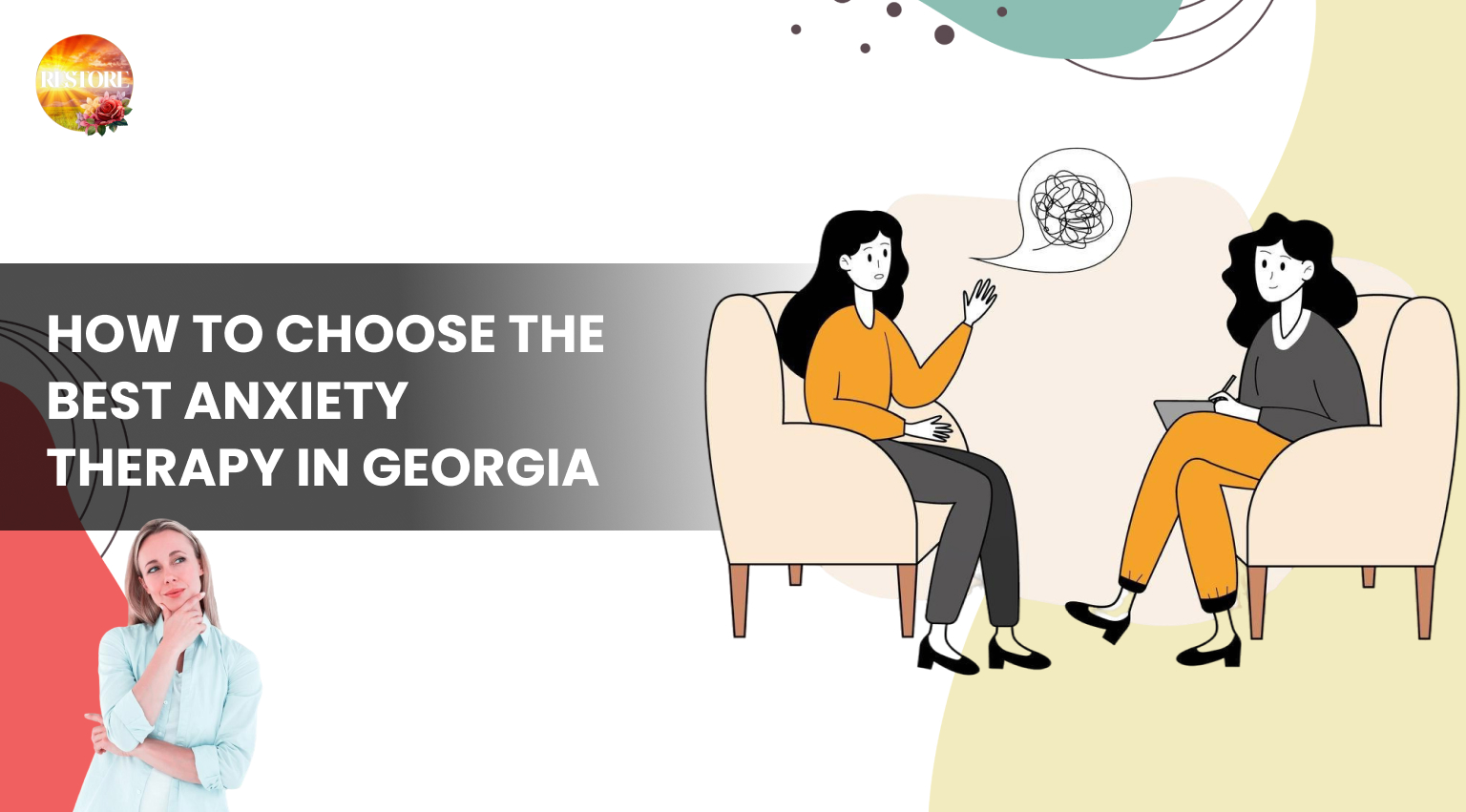

Knowing what kind of anxiety you are feeling will help you decide on a therapist or
Treatment approach. Typical forms consist of:
There are many therapy choices catered to anxiety problems available in Georgia. The most successful are these:
Cognitive Behavioral Treatment, or CBT
The gold standard for addressing anxiety is thought to be CBT. It helps you spot bad ideas and substitute better ones. Many therapists all throughout Georgia focus on CBT, and insurance usually covers it.
Treatment with Exposure:
Often used for phobias and panic attacks, exposure therapy lets you progressively face Ideas or circumstances you find terrifying. It can be presented either as a stand-alone treatment or as part of CBT.
MBSR, or mindfulness-based stress reduction
Through instruction in meditation and awareness practices, mindfulness therapy helps you stay grounded and lower anxiety. Georgia boasts a number of holistic centers and therapists who include MBSR into their work.
Originally designed for borderline personality disorder, DBT also works well for severe anxiety. It teaches interpersonal effectiveness, emotional management, and discomfort tolerance.
Drug Control
Therapy by itself sometimes is insufficient. A psychiatrist or nurse practitioner able to prescribing drugs like SSRIs or benzodiazepines could help you. Many Georgia therapists provide integrated care working with prescribers.
Search for qualified and licensed therapists
Mental health providers working in Georgia have to be licensed. Typical qualifications consist of:
LPC (Licensed Professional Counselor)
Licensed Marriage and Family Therapist, or LMFT
LCSW, sometimes known as Licensed Clinical Social Worker
Psychologist (Ph.D. or Psy.D)
Psychiatrist with D.O. or M.D. degree
See the Georgia Composite Board or Georgia Board of Psychology to find out whether your therapist is licensed. Take also into account their experience specifically addressing anxiety.
Thanks in part to more liberal telehealth rules, Georgia citizens now have easier access
To virtual therapy. Both systems have advantages and drawbacks:
Deeper personal connection is made possible in person treatment
Particularly for rural residents or those with limited transportation, online treatment is practical and easily available.
Virtual services including licensed therapists are now available on several websites including BetterHelp, Talkspace, and Georgia-based private offices.
Among the best indicators of effectiveness is a close therapeutic relationship. Inquire about therapists: Ask yourself:
Is their cultural heritage or identity clear-cut?
Are you heard and comfortable in sessions?
Do they empathetically convey and clearly explain ideas?
Georgia is a varied state, and many therapists focus on serving particular communities— including BIPOC, LGBTQ+, veterans, and faith-based organizations.
Although therapy is quite personal—what works for one person may not work for another—online reviews might provide information about a therapist’s reputation without delay:
Request referrals from your doctor or other healthcare practitioner.
Ask family members or close friends for referrals
Use directories including Georgia Psychological Association, Therapy for Black Girls, or Psychology Today.
Although therapy can be large financial outlay, there
Are ways to help to make treatment more reasonably priced:
Many Georgia therapists welcome big insurance companies including Blue Cross Blue
Shield, Aetna, Cigna, and UnitedHealthcare.
Some therapists charge sliding scale fees based on income.
Georgia boasts charity clinics run by community mental health in institutions providing either free or low-cost treatments.
Schools such as UGA and Georgia State offer reasonably priced therapy using graduate training programs.
Usually free or heavily discounted, most therapists provide an initial consultation. Make use of this session to:
Inquire regarding their anxiety experience.
Know their method of treatment
Talk about sessions, objectives, and frequency.
Trust you gut; keep looking if it doesn’t seem like a suitable fit.
Therapy is an odyssey rather than a shorter fix. To feel improvement, it could take
Several sessions; often, methods are changed as one moves along. Long-term success depends most on consistency, honesty, and cooperation with your therapist.
Although selecting the best anxiety treatment available in Georgia is a very personal choice, you do have to do it alone. First, list your needs, look at several rehabilitation modalities, and get in touch with appropriate experts. There are compassionate therapists available to help you recover emotional wellbeing and peace of mind whether your location is Atlanta, Savannah, Macon, Augusta, or anyplace in between.